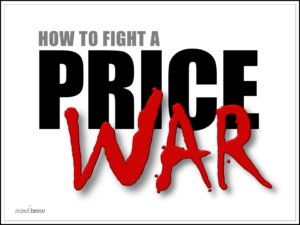Pricing managers often find it very difficult to hire new team members. Very few job candidates have any sort of formal training in the pricing discipline. Instead, companies have to rely on resumes and interviews to help them find people with the right personality traits and attitudes to be successful in pricing. And those methods are unreliable at best.
Complicating this problem is that fact most companies can’t afford a mistake when it comes to new pricing hires. Because pricing has such a dramatic impact on revenues and margins, putting someone in place who makes a major error can have drastic consequences for the entire company.
If all this has you feeling a little stressed, don’t worry—we’re about to give you a tool that can make the hiring process a lot easier.
We’ve found that the hiring process goes much more smoothly when you start by asking the right questions.
But these aren’t questions that you are going to ask your job applicants. Instead, these are questions that you are going to ask yourself. And they’re going to set the tone for your entire job search. Here they are:
- At this point in your team development, do you need pricing specialists or generalists?
- Should your role definitions be somewhat flexible or more highly defined and specific?
- Could you be adding too much headcount, too soon, and just because you can and want to?
- Are you adding human resources to perform tasks that technology should be handling?
- Are you thinking broadly enough about the skills that are necessary for success?
Why are these questions important?
Generally, you find what you are looking for. And over time, you get more and more of what you were looking for.
Say, for example, that your pricing team has identified a particular need. Maybe you need a better pricing segmentation model. The natural tendency is to post a job for a pricing segmentation specialist. You’ll probably get job candidates who are really good at slicing and dicing data.
That’s great if you have a fairly large, well-established team and you want to have a team member who is devoted to segmentation all the time.
But if you are a small, young team, you may need someone who has skills in addition to data analysis. It may be that after the pricing segmentation project is done, you will need someone who can liaise with the sales team and get them to do a better job hitting their pricing targets. Or maybe you will need someone who can help research pricing for a new product line. If you’ve hired someone to be a pricing segmentation specialist, that individual may not have the skills—or the desire—to take on those other tasks. Instead, he or she may continue to focus on segmentation—even if it is no longer the best use of his or her time.
Once you’ve started hiring for particular roles, it can be really hard to restructure your department. But letting people go isn’t good for you or for them. So it’s best to be really sure that you are looking for the right kind of person for the long term—and to make sure you really need a person. When a team is just getting started or is fairly small, we generally recommend looking for generalists who enjoy some flexibility in their job assignments rather than specialists with a narrow set of skills.
For more tips like these, watch the on-demand webinar How to Hire Great Pricing People. It covers the pros and cons of various approaches to hiring, details the seven most important attributes for pricing professionals, and outlines a host of strategies and tactics that other B2B pricing teams have found effective.














